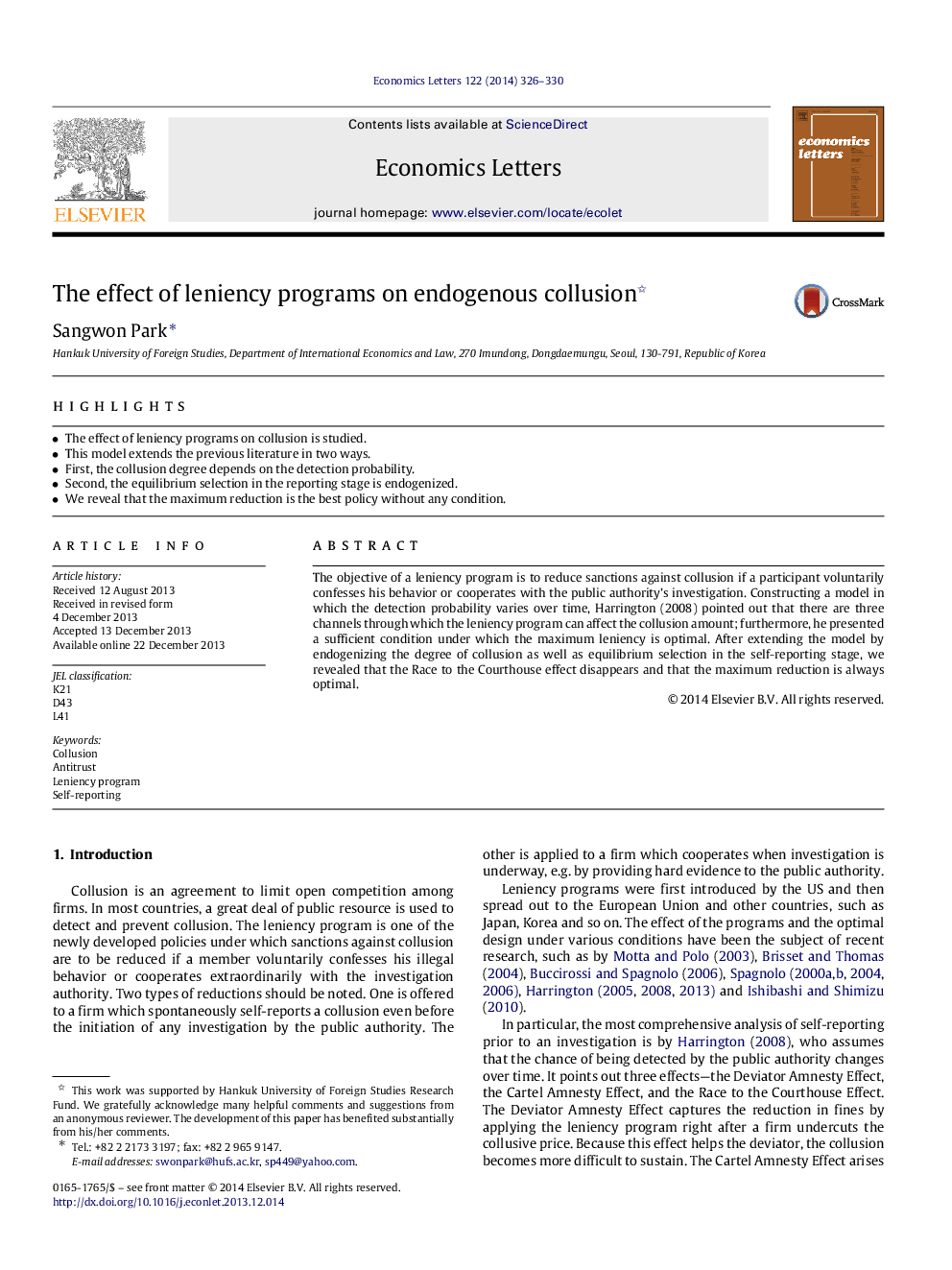| Article ID | Journal | Published Year | Pages | File Type |
|---|---|---|---|---|
| 5058963 | Economics Letters | 2014 | 5 Pages |
â¢The effect of leniency programs on collusion is studied.â¢This model extends the previous literature in two ways.â¢First, the collusion degree depends on the detection probability.â¢Second, the equilibrium selection in the reporting stage is endogenized.â¢We reveal that the maximum reduction is the best policy without any condition.
The objective of a leniency program is to reduce sanctions against collusion if a participant voluntarily confesses his behavior or cooperates with the public authority's investigation. Constructing a model in which the detection probability varies over time, Harrington (2008) pointed out that there are three channels through which the leniency program can affect the collusion amount; furthermore, he presented a sufficient condition under which the maximum leniency is optimal. After extending the model by endogenizing the degree of collusion as well as equilibrium selection in the self-reporting stage, we revealed that the Race to the Courthouse effect disappears and that the maximum reduction is always optimal.
